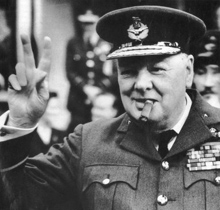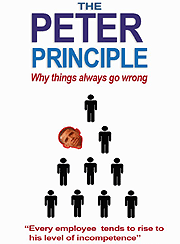 In 1940, a war-weary Britain was on the verge of capitulation. Here’s how Churchill turned it around–and what it means for you.
In 1940, a war-weary Britain was on the verge of capitulation. Here’s how Churchill turned it around–and what it means for you.
by Hitendra Wadhwa –
In 1940, when Winston Churchill became Prime Minister of Great Britain, the nation was in a state of severe crisis. Not only had its military suffered several setbacks in World War II, but the Prime Minister’s war Cabinet, deeply demoralized, was pushing Churchill to reach out to Italy’s Benito Mussolini to help orchestrate a truce with Hitler.
Churchill knew that Hitler could not be trusted and that negotiating with him would effectively constitute surrender. He desperately needed to win over his Cabinet. So he told them, “I am convinced that every man of you would rise up and tear me down from my place if I were for one moment to contemplate parley or surrender. If this long island story of ours is to last, let it end only when each one of us lies choking in his own blood upon the ground.” The response? A standing ovation. The voices of appeasement were quelled. [Read more…]

 by Chris Banescu –
by Chris Banescu – by Tony Schwartz –
by Tony Schwartz – by Tony Schwartz –
by Tony Schwartz – by Michelle Greenwald –
by Michelle Greenwald – by Ronald E. Riggio, Ph.D. –
by Ronald E. Riggio, Ph.D. – by Marla Tabaka –
by Marla Tabaka –